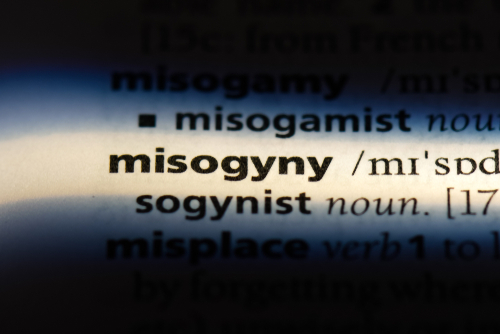From Policy to Practice: Tackling Violence Against Women and Girls in Northern Ireland

At the end of September, the Police Service of Northern Ireland marked the third anniversary of its Tackling Violence Against Women and Girls Action Plan, a milestone worth acknowledging. Yet it also serves as a stark reminder of how much further Northern Ireland still has to go. With October marking Domestic Violence Awareness Month, this is a particularly fitting time to reflect both on progress made and on the work still needed to challenge deeply ingrained patterns of harm. Now entering its fourth year, the plan set out to transform the PSNI’s approach by recognising misogynistic abuse as a systemic issue, embedding specialist training, engaging with survivor groups, and fostering cultural change both within the force and across the wider community.
Yet despite measurable progress in some areas, violence against women and girls in Northern Ireland remains a serious and persistent issue, one embedded not only in crime figures but in social attitudes, legislative gaps, and underinvestment in prevention. The challenge is clear: policy frameworks are advancing, but implementation remains inconsistent, and without parallel shifts in institutional culture and public attitudes, structural reforms will continue to underdeliver.
A deadly reality
Since 2020, 28 women in Northern Ireland have been killed violently, many by a partner or family member. In 2024, the PSNI recorded over 30,000 domestic abuse incidents and over 18,000 related crimes. While these figures are shown to be reductions on the year before, domestic abuse crimes still accounted for around one-fifth of all crime in Northern Ireland in 2024, reflecting the profound and persistent failures in early intervention, risk assessment, and protection for those at risk.
The pattern is clear in cases where victims made repeated contact with authorities before fatal incidents occurred, highlighting gaps in multi-agency coordination and risk management protocols. Northern Ireland's rates of domestic and sexual violence are consistently higher than those in other regions of the UK.
Researchers at Ulster University found that 98% of Northern Irish female respondents had experienced some form of abuse or violence in their lifetime, a figure it described as "eye-watering". The research has pointed to several compounding factors: the legacy of conflict, a "hypermasculine" culture reinforced by militarisation, a slow policy response to gender-based violence, and the delayed introduction of UK-wide legal reforms on issues such as coercive control and stalking. Ulster University's Dr Susan Lagdon said this combination has made Northern Ireland the "perfect storm" for VAWG.
Policy progress and gaps
The Northern Ireland Executive Office's Strategic Framework to End Violence Against Women and Girls, launched in 2024, has finally given Northern Ireland a long-awaited government-backed plan. It sets out a vision for prevention, protection, and support, explicitly acknowledging misogyny as the root cause of much gender-based harm.
However, policy ambition is not yet matched by consistent delivery. The Northern Ireland Affairs Committee recently warned that tackling VAWG requires a cross-system, cross-nation, whole-society approach. MPs have called for a "more joined-up response across the UK", particularly on online abuse and cross-border offences as well as sustained funding for specialist services.
The implementation gap is particularly evident in the funding model. Charities like Women's Aid, White Ribbon NI, and Nexus NI have long borne the weight of frontline prevention and victim support, often operating on short-term grants that undermine strategic planning and workforce retention. White Ribbon's campaigns, which focus on educating men about misogyny, sexism, and the roots of violence while encouraging them to speak out and challenge harmful behaviours, have gained traction in schools, workplaces, and sports clubs.
Yet the reliance on voluntary sector delivery, without commensurate investment in statutory services, creates a fragile system vulnerable to funding cycles and changing political priorities. Many argue this grassroots energy needs structural reinforcement – with comprehensive Relationships and Sexuality Education (RSE) in schools that permanently embeds discussion of misogyny, consent, and respectful relationships; alongside better resourcing for safe spaces and stronger accountability mechanisms for repeat offenders.
The PSNI's own reckoning
The PSNI's VAWG Action Plan has been a significant step forward, but also a mirror to the institution's own need for reform. Following scandals and internal misconduct cases, the past few years have forced an uncomfortable but necessary reckoning. Serious improvements have been made, something Detective Chief Inspector Leah Crothers highlighted to the press at the end of September. The force has introduced specialist Domestic Abuse Officers, trauma-informed training for recruits, and new engagement forums with survivor advocates.
However, just last week, the PSNI took two weeks to publish the image of a man convicted of rape who had failed to attend a Belfast court. For many observers, this incident underscores a critical point: institutional reform is a process, not an event. Progress in training and policy development has not yet fully translated into consistent operational practice. The gap between strategic commitments and frontline delivery remains the most significant barrier to rebuilding public confidence. Genuine reform requires not only improved policing but also enhanced support services and sustained attention to organisational culture, both within the force and across the broader justice system.
The role of education
Laws and policing address symptoms; education addresses root causes. If violence against women is rooted in attitudes formed early in life, then prevention must start in homes, schools, and communities. This is precisely why education must work alongside law enforcement reforms: changing how institutions respond to violence is essential, but challenging the attitudes that normalise or excuse it is equally necessary.
Northern Ireland's approach to Relationships and Sexuality Education (RSE) remains inconsistent, despite mounting evidence that early, inclusive teaching helps challenge harmful norms and reduce future violence. Young people need structured education on consent, respect, and equality, not ad hoc provision dependent on individual school policies.
Many education experts and NGOs have called for comprehensive RSE to be fully embedded in the curriculum, aligned with broader equality and citizenship education. This is not a substitute for criminal justice reform but a complementary strategy for long-term prevention. The absence of a consistent, statutory RSE framework represents a significant policy gap that undermines wider VAWG strategies.
What next?
Ending violence against women and girls in Northern Ireland requires sustained political will, cross-departmental coordination, and adequate resourcing. The policy architecture is strengthening – the PSNI's action plan, the Executive's strategic framework, and advocacy from specialist organisations all signal progress. However, delivery mechanisms remain underdeveloped, and the system continues to rely disproportionately on underfunded voluntary organisations and the resilience of survivors to maintain momentum.
Read more like this

Tackling Violence Against Women and Girls in the UK: Is the Government’s Strategy at Risk of Falling Short?

Short-Term Politics, Long-Term Costs

New Decade, New Approach: A framework for change - in theory more than in practice

Reform UK’s Challenge: Expanding Support Without Losing Its Core

